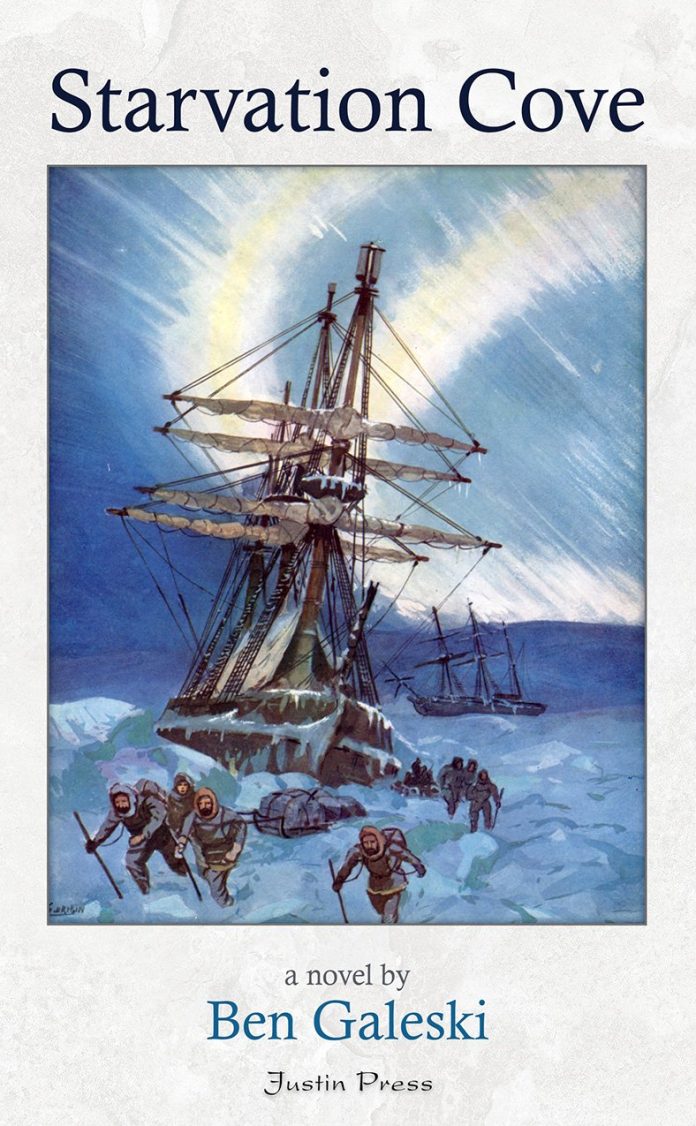Up-and-coming author Ben Galeski has written three novels thus far, two of them published by Justin Press, and the third about to be. They are works of historical fiction, a demanding genre, for one must take past events, not only make them real, but maintain consistency with the historical reality. Then, the author must add a fictional overlay – characters and events – that is consistent with that reality.
The first, Starvation Cove, is on the ill-fated Franklin expedition to the Arctic. The second, A Good Heart, on the travails of a young Canadian private, Joseph Benson, caught up from his tranquil farm life in rural Alberta into the quagmire of the horrors of World War I, and the third, Those Through Whom the Light Shines, continues the story of Benson, after he has been ordained a priest, and returns in World War II as an army chaplain, captured and placed providentially in a concentration camp.
Mr. Galeski captures the drama and scenes of these events evocatively and personally. At times, perhaps, these may seem almost too jarring, but as Flannery O’Connor said, she had to write in capital letters to get her point across to a jaded generation. Like O’Connor, along with his own inspiration, fellow Canadian author Michael O’Brien, Galeski weaves together Catholic elements in his novels, with the spiritual struggle of his antagonists, how they respond to evil, and the resolution, internal and external, that is achieved. There are vivid scenes re-played and imagined, with the characters responding in their humanity, but with the hidden effects of grace subtly in the background, moving all things somehow in accord with God’s providence. The final scene of Starvation Cove, the one that most intrigued this reader, makes one think, with some controversial and debatable soteriological elements that are well worth a conversation.
The third novel brings together these various elements in the most fully ‘Catholic’ sense, and we may look forward to further exploration of the depths of the human conscience, and the interior dialogue, in which the history of things is really written.
We give thanks that we have a new hopeful and home-grown Canadian author. We need more good fiction, not least in our Catholic milieu, works of art that lead people, young and old, even in some small way, to virtue and to the fullness of Faith.












